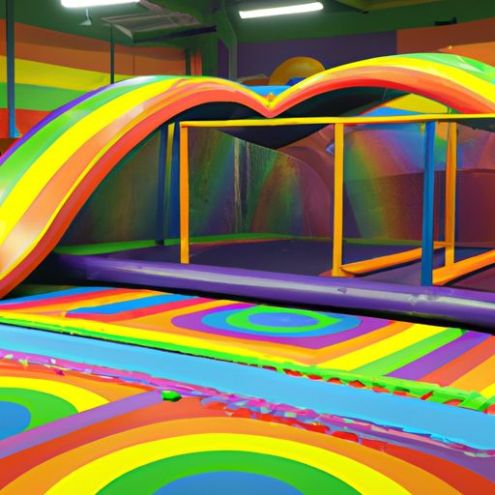Table of Contents
Benefits of Indoor Soft Playgrounds for Children’s Development
Indoor soft playgrounds have become increasingly popular in recent years as parents and caregivers seek safe and engaging environments for children to play and explore. These indoor play spaces are equipped with soft play equipment that is specifically designed to promote physical activity, social interaction, and cognitive development in young children. From climbing structures and Slides to Ball Pits and sensory play areas, indoor soft playgrounds offer a wide range of activities that cater to children of all ages and abilities.
One of the key benefits of indoor soft playgrounds is the opportunity for children to engage in active play in a controlled Environment. Unlike traditional playgrounds, which are often exposed to the elements and can pose Safety risks, indoor soft playgrounds provide a safe and secure space for children to run, jump, climb, and explore. The soft play equipment is designed to cushion falls and reduce the risk of injury, allowing children to play freely without fear of getting hurt.
In addition to promoting physical activity, indoor soft playgrounds also offer numerous opportunities for social interaction and skill development. Children can engage in cooperative play with their peers, learning important social skills such as sharing, taking turns, and resolving conflicts. They can also develop their fine and gross motor skills through activities like climbing, crawling, and balancing on the soft play equipment. These activities help children build strength, coordination, and confidence in their physical abilities.
Furthermore, indoor soft playgrounds provide a sensory-rich environment that stimulates children’s cognitive development. The bright colors, textures, and sounds of the soft play equipment engage children’s senses and encourage exploration and creativity. Children can experiment with cause and effect, problem-solving, and spatial awareness as they navigate the various play structures and Obstacles. This type of sensory play is essential for children’s brain development and helps them learn to process and respond to sensory information in their environment.
Another benefit of indoor soft playgrounds is the opportunity for children to engage in imaginative and pretend play. The soft play equipment is often designed to resemble familiar objects and environments, such as castles, forests, or underwater worlds. This allows children to use their imagination and creativity to create their own stories and scenarios as they play. Imaginative play is important for children’s emotional development, as it helps them express their feelings, build empathy, and develop a sense of identity.
 In conclusion, indoor soft playgrounds offer a wide range of benefits for children’s development, including physical activity, social interaction, cognitive stimulation, and imaginative play. These indoor play spaces provide a safe and engaging environment for children to explore, learn, and grow. By investing in indoor soft playgrounds, parents and caregivers can support their children’s overall development and well-being. Whether it’s climbing, sliding, jumping, or pretending, indoor soft playgrounds offer endless opportunities for children to play, learn, and have fun.
In conclusion, indoor soft playgrounds offer a wide range of benefits for children’s development, including physical activity, social interaction, cognitive stimulation, and imaginative play. These indoor play spaces provide a safe and engaging environment for children to explore, learn, and grow. By investing in indoor soft playgrounds, parents and caregivers can support their children’s overall development and well-being. Whether it’s climbing, sliding, jumping, or pretending, indoor soft playgrounds offer endless opportunities for children to play, learn, and have fun.

